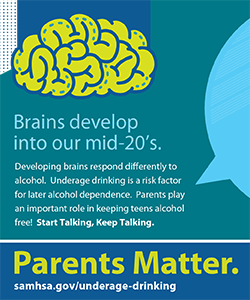|
Dutch vote in test of anti-elite
sentiment in Europe
 Send a link to a friend
Send a link to a friend
 [March 15, 2017]
By Stephanie van den Berg and Toby Sterling [March 15, 2017]
By Stephanie van den Berg and Toby Sterling
THE HAGUE (Reuters) - Dutch people voted on
Wednesday in an election seen as a test of nationalist feeling magnified
by a furious row with Turkey and the first of three polls this year in
the European Union where anti-immigrant parties are seeking
breakthroughs.
The center-right VVD party of Prime Minister Mark Rutte, 50, is vying
with the PVV (Party for Freedom) of anti-Islam and anti-EU firebrand
Geert Wilders, 53, to form the biggest party in parliament.
As many as 13 million voters began casting ballots at polling stations
across the country that will close at 9:00 p.m. A charged campaign, plus
clear skies and sunshine meant high turnout was expected.
With as many as four out of 10 voters undecided a day before voting and
a tight margin of just 4 percent between leading candidates, the outcome
was unpredictable.
Wilders, who has vowed to "de-Islamicise" the Netherlands, has virtually
no chance of forming a government given that all the leading parties
have ruled out working with him, but a PVV win would still send
shockwaves across Europe.
The vote is the first gauge this year of anti-establishment sentiment in
the European Union and the bloc's chances of survival after the surprise
victory of EU-skeptic Donald Trump in the United States and Britain's
2016 vote to exit the union.

"What I call the patriotic parties are gaining some momentum... but
whatever the outcome of the election today the genie will not go back
into the bottle and this patriotic revolution, whether today or
tomorrow, will take place," Wilders said after voting at a school in The
Hague.
Wilders' appeal had won over Wendy de Graaf, who dropped her children
off at the same school. "I hope he can make a change to make the
Netherlands better.. I don't agree with everything he says... but I feel
that immigration is a problem," she said.
France chooses its next president in May, with far-right Marine Le Pen
set to make the second-round run-off, while in September right-wing
euroskeptic party Alternative for Germany, which has attacked Chancellor
Angela Merkel's open-door refugee policy, will probably win its first
lower house seats.
Rutte, who has called the Dutch vote a quarter-final before a French
semi-final and German final said a Wilders victory would be felt well
beyond the Netherlands.
"I think the rest of the world will then see after Brexit, after the
American elections again the wrong sort of populism has won the day," he
said.
Late opinion polls indicated a three percentage point lead for his party
over Wilders', with a slight boost from a rupture of diplomatic
relations with Ankara after the Dutch banned Turkish ministers from
addressing rallies of overseas Turks.
Turkish President Tayyip Erdogan accused the Dutch of behaving like
Nazis.
[to top of second column] |

People vote during the general election at a poling station in The
Hague, Netherlands, March 15, 2017. REUTERS/Dylan Martinez

"I think Rutte did well this weekend with the Turkey row," said Dave
Cho, a 42-year-old supply manager and long-time VVD supporter.
NO CLEAR WINNER, WEEKS OF BARGAINING
Unlike the U.S. or French presidential elections, there will be no
outright Dutch winner under its system of proportional
representation. Up to 15 parties could win a seat in parliament and
none are set to reach even 20 percent of the vote.
"Although the conflict with Turkey helped the biggest parties, the
final polls show that whichever finishes first is likely to do so
with a record low percentage of the total vote," said pollster
Maurice de Hond.
Experts predict a coalition-building process that will take many
months once the final tally is known.
Rutte's last government was a two-party coalition with the Labour
Party, but with no party polling above 17 percent, at least four
will be needed to secure a majority in parliament. It would be the
first such multi-party alliance since three in the 1970s. Two of
those fell apart within 12 months.
In a final debate Tuesday night, Wilders clashed with Lodewijk
Asscher, whose Labour party stands to lose two-thirds of its seats
in its worst defeat ever on current polling.
Asscher defended the rights of law-abiding Muslims to not be treated
as second-class citizens or insulted. Wilders shot back: "The
Netherlands is not for everyone. The Netherlands is for the Dutch."
Front-runner Rutte, who is hoping Dutch economic recovery will help
him carry the election, has been insistent on one thing - that he
will neither accept the PVV as a coalition partner nor rely on
Wilders to support a minority government, as was the case in
2010-2012.
"Not, never, not," Rutte told Wilders.

(Additional reporting by Phil Blenkinsop and Anthony Deutsch;
Editing by Hugh Lawson and Dominic Evans)
[© 2017 Thomson Reuters. All rights
reserved.]
Copyright 2017 Reuters. All rights reserved. This material may not be published,
broadcast, rewritten or redistributed. |